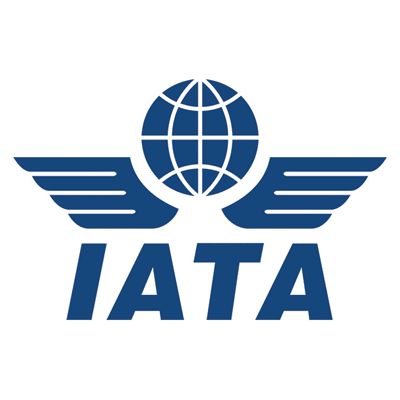Restoring Indian aviation competitiveness
- Like
- Digg
- Del
- Tumblr
- VKontakte
- Buffer
- Love This
- Odnoklassniki
- Meneame
- Blogger
- Amazon
- Yahoo Mail
- Gmail
- AOL
- Newsvine
- HackerNews
- Evernote
- MySpace
- Mail.ru
- Viadeo
- Line
- Comments
- Yummly
- SMS
- Viber
- Telegram
- Subscribe
- Skype
- Facebook Messenger
- Kakao
- LiveJournal
- Yammer
- Edgar
- Fintel
- Mix
- Instapaper
- Copy Link
Posted: 15 March 2012 | IATA | No comments yet
IATA called on India to develop a common vision for Indian aviation…


The International Air Transport Association (IATA) called on India to develop a common vision for Indian aviation expressed in a National Aviation Policy with a strong implementation plan.
“Indian aviation has tremendous potential to drive economic growth in the sub-Continent. But to realize this, India needs a common vision for aviation—expressed in a National Aviation Policy strongly linked to an implementation plan. Such a policy would need to re-build competitiveness by addressing the difficult issues of tax, cost, investment and infrastructure,” said Tony Tyler, IATA’s Director General and CEO in a keynote address at the India Aviation 2012 conference, noting considerable ground work already done by the Ministry of Civil Aviation (MOCA) in consultation with industry stakeholders.
Aviation is responsible for 0.5% of India’s GDP and supports 1.7 million jobs. And people on average in India make 0.1 trip per year, or one trip by air every 10 years, compared to 1.8 times per year in the US. “Aviation’s contribution to the India economy could be much more. If India’s 1.17 billion people traveled at the same frequency as in the US, a market of 2.1 billion travelers would be created. Even one-third of that would be an air travel market of about 700 million, rivaling that of the US,” said Tyler.
Tyler suggested a four pillar agenda to build competitiveness:
Taxes: Tyler highlighted the damaging effects of jet fuel taxes in India. All fuel is subject to an 8.24% excise duty and domestic flights face state fuel taxes of up to 30%. As a result, fuel represents an average of 45% of operating costs for India’s airlines, compared to a global average of 32%. “The high cost of jet fuel has been hijacking the competitiveness of the Indian air transport industry for over a decade. It is now clearly recognized by all that fuel taxes are sucking the life blood from the Indian aviation sector. The industry is now in crisis and we need a coordinated effort among all Ministries—at national and state levels—to restore competitiveness,” said Tyler. Tyler also urged the removal of Service Tax on both tickets and on services that airlines purchase, to align with international principles and boost competitiveness.
Infrastructure: Tyler highlighted the need for capacity expansion in Mumbai. “Mumbai is bursting at the seams. The first phase was meant to open in 2014 but construction has not even begun. Land acquisition is not yet complete. We need a coordinated effort across all government ministries to facilitate success without further delay—as was achieved for the opening of Delhi’s new terminal,” said Tyler.
Cost: Tyler urged MOCA to intervene in the discussion of proposed charges increases at Delhi International Airport. “The new terminal and third runway have been a much needed boost. But if the 340% increase in charges over the next two years is implemented, it will make Delhi the most expensive airport in the world—and destroy its competitiveness,” said Tyler.
“Given the broad economic implications that this would have it is important that the government takes immediate action. First, 340% is unacceptable. It would be a shock to the system that would ripple throughout the economy. The Ministry cannot stand by and let this happen. It must intervene with a broader context. This should take into consideration the long-term development of Indian aviation at its hubs. And if need be, the concession contracts, which at Delhi channel 46% of revenues to the Airports Authority of India, need to be re-thought with the aim of offsetting aeronautical charges. The solutions are readily available and there is no reason why the 340%, or any increase of this magnitude, should be allowed to go through,” said Tyler.
Tyler also urged that (1) any legitimate revenue claw-back under the current regulatory structure be spread across a number of years, not crammed into the next two, (2) an urgent review should look at the structure of charging for international versus domestic and (3) there should be a review of the allocation of aeronautical and non-aeronautical assets to be more in line with other major international airports.
Investment policies: Tyler urged the positive consideration of MOCA proposals to allow up to 49% direct investment by foreign carriers in Indian airlines. “This would allow strategic tie-ups with foreign airlines similar to arrangements that have successfully strengthened airline groups in other parts of the world. What is the public policy imperative of denying this possibility to Indian carriers?” questioned Tyler.
“But allowing foreign airlines to invest in Indian aviation is not a panacea. Without addressing the other three pillars—costs, taxes and infrastructure—it may only be a theoretical exercise. Under current conditions, the odds are stacked against any investor making a positive return on investment in the Indian aviation sector. And no one is likely to come forward unless they see themselves making a profit,” said Tyler.
Tyler expressed optimism that India has a promising aviation future if these issues can be addressed. “I am passionate about aviation. And I am an India optimist. IATA will be fully engaged in the team effort to turn Indian aviation into the great success story that it has the potential to become. India should not settle for a bronze medal in the world of aviation. It has pure gold potential,” said Tyler.













